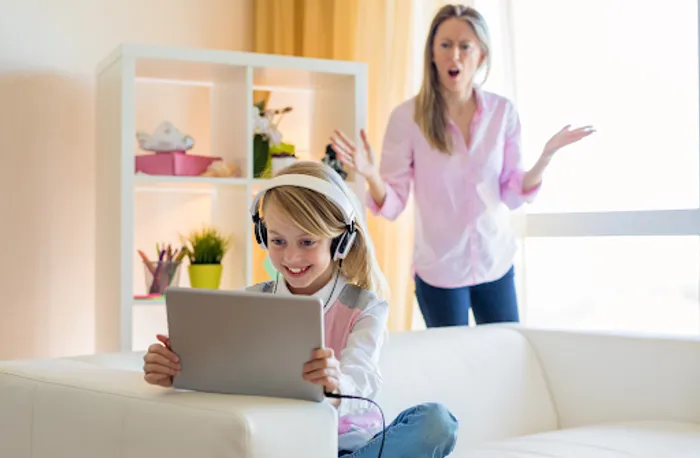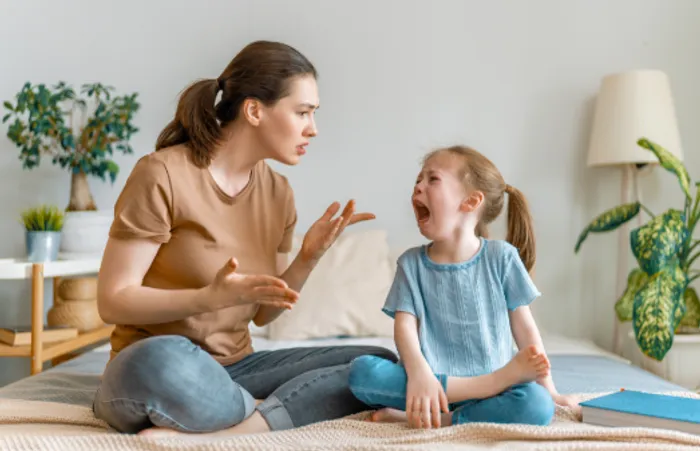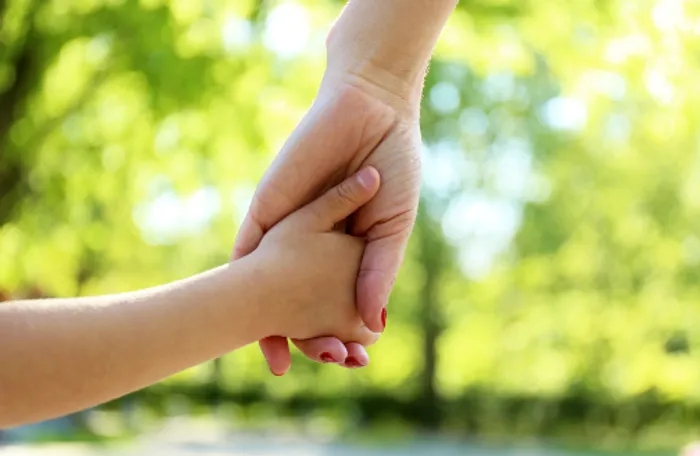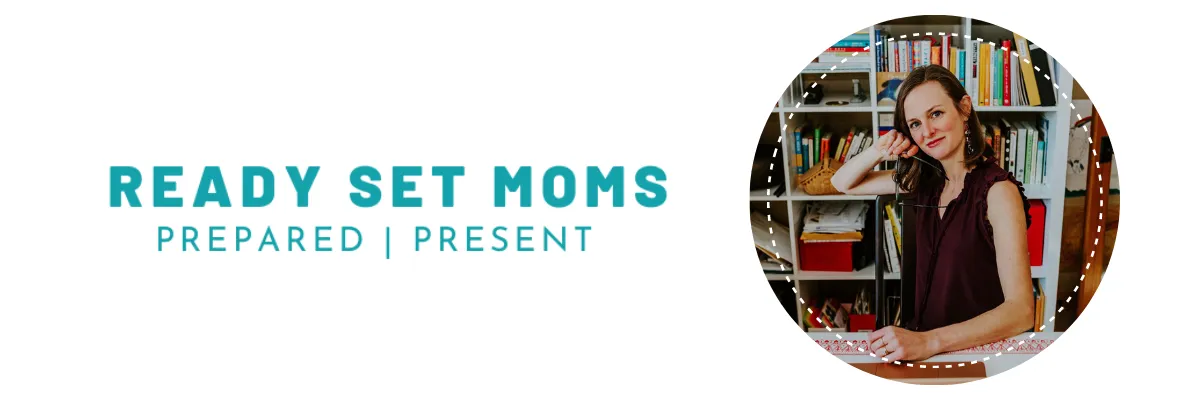Yelling & Parenting: is this combination ever ok?
If you’ve been known to yell as a parent, and you don’t like it… take a deep breath, this one’s for you.

Yelling and Parenthood
In the family that I grew up in, my parents never yelled. Frequent yelling was unheard of because yelling was a sign of weakness. Losing your cool was losing your power. And if you lose your power, you lose your authority.
When I became a mother of two, imagine my surprise when I became a yeller. All the yelling was a source of deep shame and a vicious cycle.
My motherhood journey has entailed:
- Getting through PMAD and dealing with postpartum rage
- Learning I’m an HSP and dealing with overstimulation
- Learning I’m an Enneagram Type 1 and dealing with perfectionism
The good thing is that I yell a lot less than I used to. A lot. Noticeable differences. But still I sometimes find that I’ve yelled and I didn’t even see it coming. It’s like it happened to me. Here’s a recent example.
What toy guns can teach us about moms who yell
In the middle of a long weekend in a big house on the Oregon Coast, 27 of my husband’s relatives, who had gathered for a family reunion, were dressed up for a nautical-themed party. We had striped shirts and sailor hats, we had pirates, we even had sea monsters. My husband and I were dressed (not-convincingly) as Miami Vice. Good times were being had by all.
Until I started yelling.
Across the table from me stood a smiling 13-year-old girl dressed as a pirate (let’s call her Jessica). She held a toy gun (which had come with her pirate costume) to her 6-year-old sister’s head.

Even a toy gun can be triggering
She said to her step-mom (let’s call her Michelle): Hey look!
Me (calm and direct): Jessica, no, don’t do that.
Jessica (still smiling): Hey, Michelle, look!
Me (a little louder, so Jessica could hear me over the din of the party): Jessica, no.
Jessica (still smiling, also a little louder for attention): Michelle! Look!
Me (now hitting a breaking point and yelling): JESSICA, NO!
At which point the step-mom intervened, the 13-year-old was crying, and I was shaking. If I looked around at anyone else, I’m sure I would've seen WTF faces.

What my brain knew about this situation with young children:
- This gun was clearly a toy. It was made of plastic, painted bronze and black, with the tell-tail "I'm a toy" orange tip. I knew in my brain that this was a toy that posed no danger.
- The 13-year-old holding the gun was clearly playing. I knew in my brain that this child posed no danger.
- The 6-year-old with the toy gun to her head didn't even know what was happening. I knew in my brain that the younger child did not feel in danger.
But I was triggered by the child’s behavior. Literally, I guess. A fight or flight response with negative effects galore. My brain knew, but my body didn’t. My higher-order brain knew all those things and tried to calmly guide the 13-year-old not to do that. It wasn’t funny. It will never be funny.
But when I wasn’t getting through, and I couldn’t get across the table to calmly touch her on the arm, the reflexive part of my brain took over and used the only tool she could find: raising my voice.
My emotional response got her attention. When a parent yells, it usually does. But nobody felt good about it.
More on this later....
(End scene)
There is good news, though: How I went from being a mom that yelled on a regular basis to one who rarely yells
It’s clear in my own personal work and in the work I’ve done coaching moms, that trying not to yell doesn’t work. You need to consider the context. You need to go upstream, before the yelling even happens, so you can consider the state of your:
- Mind (are you suffering from sleep deprivation? Mental health issues?)
- Body (any physical health problems going on? Chronic pain?)
- Nervous system (Overstimulation? Chronic stress?)
The things that have helped me go from the kind of parent that yelled every day to only on occasion include a form of Cognitive Behavioral Therapy (CBT) called ACT, or Acceptance and Commitment Therapy. Defining my values and how I want to act is one thing, but getting curious about why sometimes I’m not able to act according to my values allowed me to accept what is and isn't in my control, including how I'm built and what I need.
In my own experience, I’ve also benefited from learning about PMAD, HSP, and the enneagram. But that understanding was only in my brain.
To take that understanding from theory to practice, I activelynurture my nervous system and cultivate self-compassion, which I still have a hard time with here and there, so that I can have calmer responses. It’s the little things.

But here’s a totally new lesson about yelling that I learned at that costume party: self-forgiveness
When I yelled at that 13-year-old girl, it was a primal response. The psychological cause-and-effect chain was real. I was disturbed by what I was seeing: a gun held to a child’s head. Didn't matter that it was a toy.
At first I was choosing to engage calmly, but when that wasn’t working it’s almost like I didn’t have a choice but to yell to snap the 13-year-old out of her joking state and bad behavior and stop the scene.
If my child were about to step into traffic, I’d yell.
If a dog was charging at us, teeth bared, I’d yell.
If my young kids were physically fighting and I’ve tried talking calmly, and helping them down-regulate, and touching their arms to get their attention, and inserting myself between them, and restraining one or the other, and they’re still clawing and kicking, I’m not sure if you would, but I’d yell. (I don’t have it in me to let them fight without intervening. Maybe someday I’ll try that approach.)
And while I still don't like how it feels to yell or exert harsh verbal discipline, from now on, I’m not going to beat myself up about it.
Because I'm a human that has human responses. And I'm trying my conscientious best.
Self-compassion. In the long run, this is a great lesson to learn.

After the yelling
But of course we aren't going to just leave it there. What comes next is:
- Soothing my nervous system, which is likely pumping with adrenaline or cortisol (read: stress hormones)
- Forgiving myself — I’m only human after all. I know my intentions are good and I strive to be a good parent
- Returning to the person I yelled at to revisit and repair, de-escalate conflicts and do the right thing
As the acclaimed Dr. Becky Kennedy shares, “Repair is really the act of going back to a moment that didn't feel good, taking responsibility, reconnecting, and making a plan for going forward. You know, kind of change the ending of a story. It's not the yelling that messes up a kid. It's the lack of repair after the yelling that messes up a kid.” The detrimental effects to the child and the relationship are real.
So I took my overstimulated self to a quiet room. Because I couldn't settle myself down in a room crowded with in-laws. I sat alone and let the moment pass.
I processed my own emotions and gave myself some self-compassion, which sounded like, "Even though I knew that was a toy, and even though I don't like that I yelled, I understand why I did. And I forgive myself."
And I returned to the party with a goal of preventing any negative outcomes. We revisited — myself, the step-mom, and the 13-year-old. We repaired. I hope.
Did this resonate? Did this help you in some way? Please let me know! I’d love to hear from you. You can comment below or email me at [email protected].
This post was all about yelling and parenthood.
Ready Set Recap
- Trying not to yell doesn't work
- You need to go upstream to check on your mind, body, and nervous system
- After the yelling: sooth your nervous system, revisit and repair
This post was all about yelling and parenthood. If this meant something to you, you might also like:
How to let go of perfectionism in motherhood
5 Ways to Start Taking in the Good
Resentment in Motherhood and What it can Teach Us
If this post helps make your mom-life easier,
subscribe to the weekly-ish newsletter and never miss a post.



